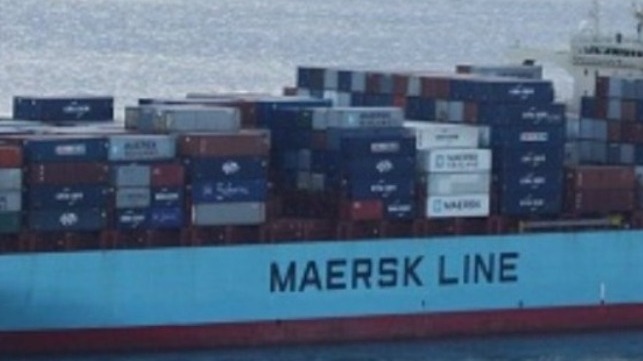Maersk Accelerates Decarbonization Effort with First Ship Due by 2023

Citing advancements in technology and increasing customer demand, Maersk announced that it plans to launch by 2023 what it is calling “the world’s first carbon-neutral liner vessel.” The ship, which will use methanol as its primary fuel, is part of an overall effort to accelerate the line’s decarbonization efforts.
“Our ambition to have a carbon-neutral fleet by 2050 was a moonshot when we announced in 2018. Today we see it as a challenging, yet achievable target to reach,” says Søren Skou, CEO, A.P. Moller - Maersk.
As a result of the advancements with technologies to develop alternative fuels, Maersk is advancing the launch date for its carbon-neutral ship by seven years from the original target of 2030. The line also said that all its future owned newbuilt vessels will be fitted with dual-fuel technology, enabling either carbon-neutral operations or operation on standard very low sulfur fuel oil (VLSFO). The company said that both the first methanol-fueled vessel and the decision to install dual-fuel engines on future newbuildings are part of Maersk’s ongoing fleet replacement plans.
Maersk will start the transition with its first vessel being a smaller feeder ship with a capacity of around 2000 TEU. The company is working to finalize the design and seeking partners and a shipyard for the construction order that is expected to be placed in the near future. While the vessel will be fitted with a dual-fuel propulsion plant capable of operating on standard VLSFO, Maersk said it plans to operate the vessel on carbon-neutral e-methanol or sustainable bio-methanol.
“We believe our aspiration to put the world’s first carbon-neutral liner vessel in operation by 2023 is the best way to kick start the rapid scaling of carbon-neutral fuels we will need,” said Henriette Hallberg Thygesen, CEO of Fleet & Strategic Brands, A.P. Moller - Maersk. “It will be a significant challenge to source an adequate supply of carbon-neutral methanol within our timeline to pioneer this technology. Our success relies on customers embracing this groundbreaking product and strengthened collaboration with fuel manufacturers, technology partners, and developers to ramp up production fast enough.”
Based on discussions with its customers, Maersk believes the demand exists and the customers will be willing to pay the cost of shipping their goods in a sustainable operation. They reported that around half of Maersk’s 200 largest customers have set, or are in the process of setting, ambitious science-based or zero carbon targets for their supply chains. Maersk also believes that the demand will continue to rise.
Maersk has been part of several efforts working to develop the future technologies required to support the industry’s switch to alternate fuels. Among these efforts is the work of the Mærsk Mc-Kinney Møller Center for Zero Carbon Shipping, an independent, non-profit research and development center. Maersk reports that it continues to explore several carbon-neutral fuel pathways and expects multiple fuel solutions to exist alongside each other in the future. Methanol (e-methanol and bio-methanol), alcohol-lignin blends, and ammonia remain the primary fuel candidates for the future.
“Our customers expect us to help them decarbonize their global supply chains, and we are embracing the challenge, working on solving the practical, technical, and safety challenges inherent in the carbon-neutral fuels we need in the future,” says Skou.
By advancing its timeline for decarbonization Maersk expects to incentivize fuel suppliers to scale production of the fuels of the future. They noted that a carbon-neutral future for shipping will require innovation, test, and collaboration across multiple industry partners.
